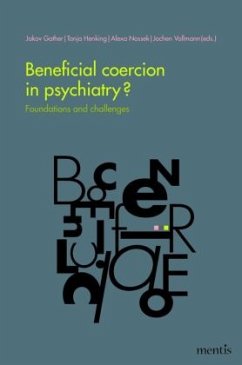Coercion in the treatment of persons suffering from mental disorders is one of the major ethical controversies in psychiatry. Despite great efforts to reduce the use of coercive interventions, they are still widespread and differ among European countries with regard to the specific type of intervention and the number of affected patients. It is common to justify measures against the present will of patients under the assumption that they promote their well-being, that is, by reference to the ethical principal of beneficence. However, it is indisputable that such measures can also cause severe harm to the patients concerned and that they are often experienced as degrading. So in which situations can coercive interventions justifiably be labeled as "beneficial" at all? How can they be reduced to a minimum? This volume addresses these issues from an interdisciplinary and international perspective, combining contributions of amongst others medical ethicists, philosophers, legal scholars, psychologists, psychiatrists from different European countries. Theoretical and conceptual essays are complemented by contributions with a strong relation to clinical practice.
Hinweis: Dieser Artikel kann nur an eine deutsche Lieferadresse ausgeliefert werden.
Hinweis: Dieser Artikel kann nur an eine deutsche Lieferadresse ausgeliefert werden.








